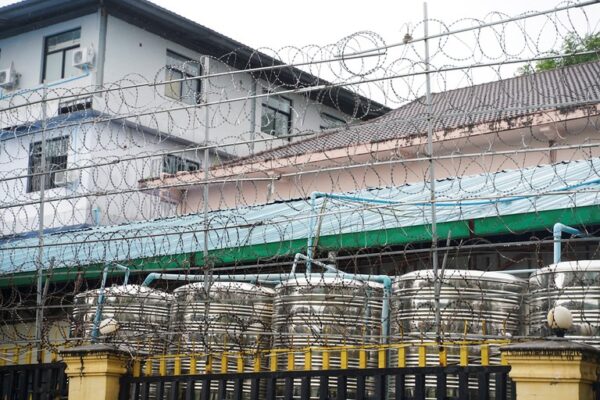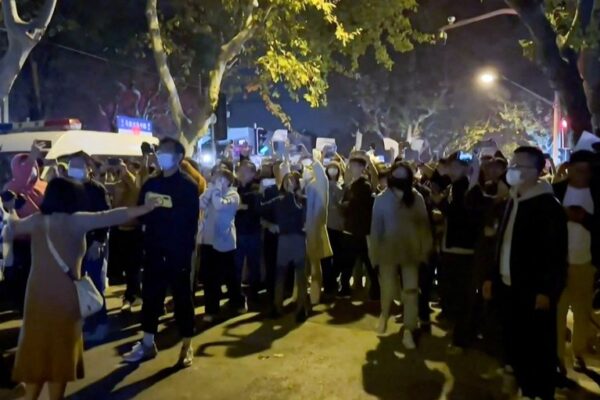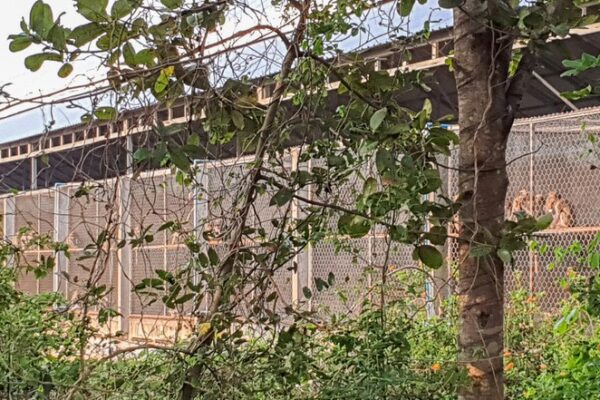It was a clear day when Kham set out from his home in northwestern Laos for what he thought was a chance to make money in the gilded gambling towns of the Golden Triangle, the border region his country shares with Thailand and Myanmar. On that day – a Friday, as he recalled – the teenager had gotten a Facebook note from a stranger: a young woman asking what he was doing and if he wanted to make some cash. He agreed to meet that afternoon. She picked up Kham, 16, along with a friend, and off they went, their parents none the wiser. “I thought to myself I’d work for a month or two then I’d go home,” Kham later said. (RFA has changed the real names of the victims in this story to protect them from possible reprisals.) But instead of a job, Kham ended up trafficked and held captive in a nondescript building on the Burmese-Thai border, some 200 miles south of the Golden Triangle and 400 miles from his home – isolated from the outside world, tortured and forced into a particular kind of labor: to work as a cyber-scammer. Barbed wire fences are seen outside a shuttered Great Wall Park compound where Cambodian authorities said they had recovered evidence of human trafficking, kidnapping and torture during raids on suspected cybercrime compounds in Sihanoukville, Cambodia, in Sept. 2022. Credit: Reuters In recent years, secret sites like the one where Kham was detained have proliferated throughout the region as the COVID-19 pandemic forced criminal networks to shift their strategies for making money. One popular scheme today involves scammers starting fake romantic online relationships that eventually lead to stealing as-large-as-possible sums of money from targets. The scammers said that if they fail to do so, they are tortured. Teen victims from Luang Namtha province in Laos who were trafficked to a place they called the “Casino Kosai,” in an isolated development near the city of Myawaddy on Myanmar’s eastern border with Thailand, have described their ordeal to RFA. Chillingly, dozens of teenagers and young people from Luang Namtha are still believed to be trapped at the site, along with victims from other parts of Asia. The case is but the tip of the iceberg in the vast networks of human trafficking that claim over 150,000 victims a year in Southeast Asia. Yet it encapsulates how greed and political chaos mix to allow crime to operate unchecked, with teenagers like Kham paying the price. This fake Facebook ad for the Sands International is for a receptionist. It lists job benefits of 31,000 baht salary, free accommodation and two days off per month. Qualifications are passport holder, Thai citizen, 20-35 years old and the ability to work in Cambodia. Credit: RFA screenshot The promise of cash Typically, it starts with the lure of a job. In the case of Lao teenagers RFA spoke to, the bait can be as simple as a message over Facebook or a messaging app. Other scams have involved more elaborate cons, with postings for seemingly legitimate jobs that have ensnared everyone from professionals to laborers to ambitious youths. What they have in common is the promise of high pay in glitzy, if sketchy, casino towns around Southeast Asia – many built with the backing of Chinese criminal syndicates that operate in poorly policed borderlands difficult to reach. Before 2020, “a lot of these places were involved in two things: gambling, where groups of Thais and Chinese were going for a weekend casino holiday, or online betting,” said Phil Robertson, deputy director for Asia at Human Rights Watch. “Then, all of a sudden COVID hits, and these syndicates [that ran the casinos] decided to change their business model. What they came up with was scamming.” A motorbike drives past a closed casino in Sihanoukville, Cambodia, in Feb. 2020. As travel restrictions bit during the pandemic, syndicates that ran the casinos shifted their focus from gambling to scams, says Phil Robertson of Human Rights Watch. Credit: Reuters Today, gambling towns like Sihanoukville, in Cambodia, and the outskirts of Tonpheung, on the Laos side of the Golden Triangle, have become notorious for trapping people looking for work into trafficking. But besides these places, there are also numerous unregulated developments where scamming “casinos” operate with little outside scrutiny, including on the Thai-Burmese border. Keo, 18, had a legitimate job at a casino in Laos when he was contacted via WhatsApp by a man who said he could make much more – 13 million kip ($766) a month, plus bonuses – by working in Thailand. He could leave whenever he wanted, the person claimed. “I thought about the new job offer for two days, then I said yes on the third day because the offer would pay more salary, plus commission and I can go home anytime,” Keo said. He quit his job by lying to his boss, saying he was going to visit his family. A few days later, a black Toyota Vigo pick-up truck fetched him, along with two friends, and they took a boat across the Mekong to Thailand. Scams By that time, Keo realized he was being trafficked – the two men who escorted him and his friends were armed. “While on the boat, one of us … suggested that we return to Laos, but we were afraid to ask,” as the men carried guns and knives. He dared not jump. “Later, one of us suggested we call our parents – but the men said, ‘On the boat, we don’t use the telephone.’ We dared not call our parents because we were afraid of being harmed,” he said. “So, we kept quiet until we reached the Thai side.” Both Keo and Kham told RFA that they were eventually trafficked to Myawaddy Township, an area some 300 miles south of the Golden Triangle. Kham only remembered parts of the journey, when he was made to walk for miles. Keo told RFA Laos he was transported by a…





